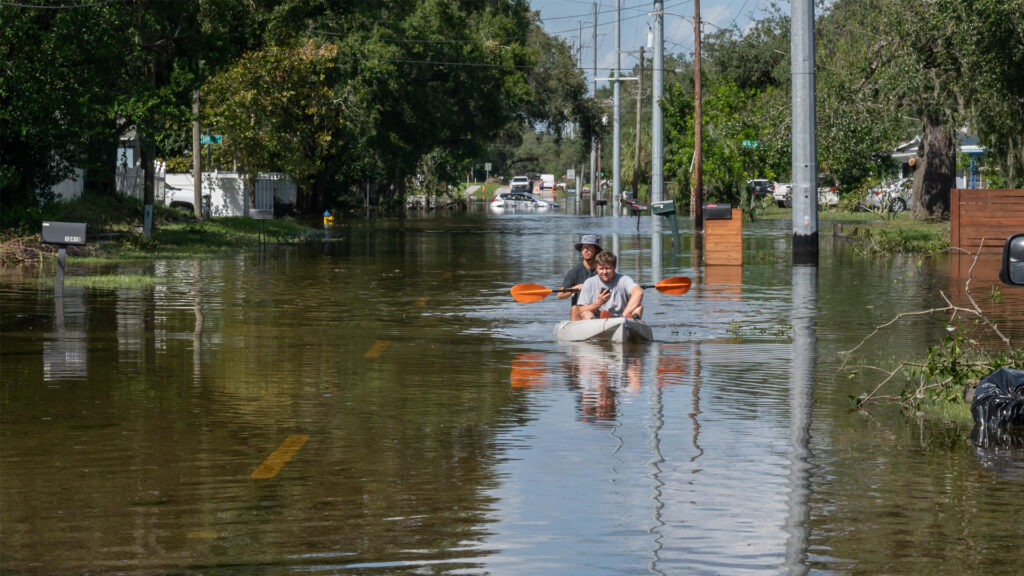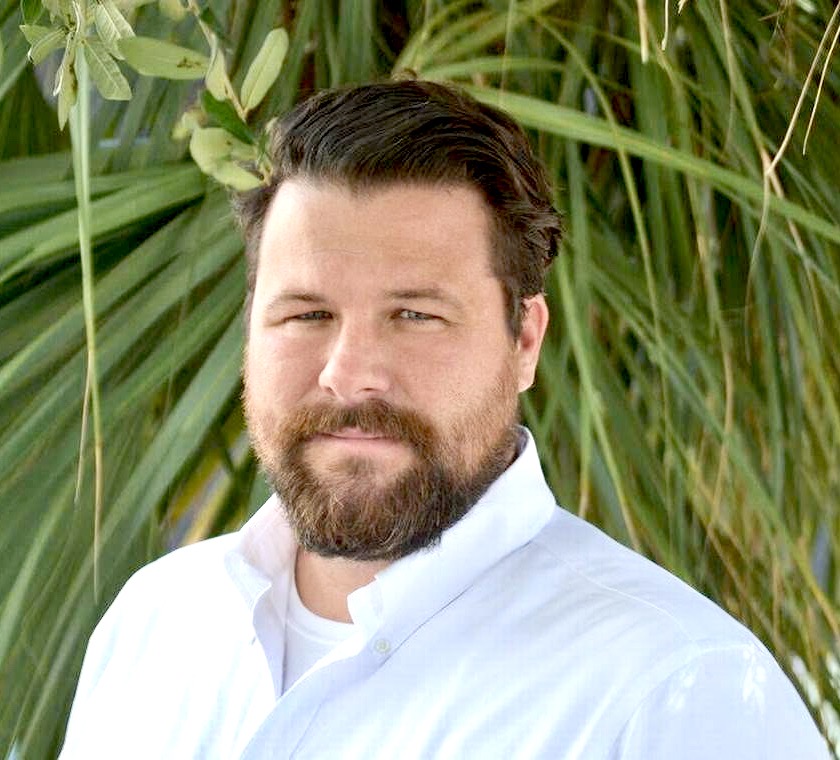By J.P. Brooker, Ocean Conservancy
There are less than two months until the start of hurricane season, when devastating storm cycles will rip through communities across Florida and the southern U.S., flooding and destroying the homes and communities that millions of Americans hold dear. And, despite the increasing severity of storms, many of these communities will find themselves less prepared than they were a year ago.
The Trump administration’s elimination of more than 800 jobs at the National Oceanic and Atmospheric Administration, and recent news that the administration plans to cut NOAA’s budget for weather and climate research, hits hard and defies logic. We rely on NOAA, which includes the National Weather Service and the National Hurricane Center, to provide us accurate information about approaching hurricanes’ strength, direction, timing and potential impact.
These cuts reduce NOAA’s ability to deliver this essential public service and so many others, and they will make my family, my neighbors – in fact, every Floridian and every American – less safe. If the further cuts go through, experts estimate that NOAA staffing will be down 25% since the start of the year — threatening the agency’s core mission to protect Americans by predicting extreme weather.

As a Florida native who has lived in the Tampa Bay area for 15 years, my family and I have first-hand experience with preparing for hurricanes and their devastating impact on entire communities.
This past September, in preparation for Hurricane Helene, we put sandbags in front of the doors of our St. Petersburg home and stocked up on water and other supplies. The record storm surge flooded our neighborhood with 6.5 feet of salt water. We lost our car and nearly half of our house – and we were the lucky ones.
Hurricane Helene’s winds and flooding killed more than 230 people across several states, damaged thousands of homes and wiped out entire communities. It was the first of a one-two punch, with Hurricane Milton following 13 days later and ripping through some of the same areas. In the Tampa Bay region, many families still cannot return to their damaged homes and are dealing with property insurance, building permits and the loss of so many cherished personal possessions that cannot be replaced.
This year could be even worse if we can’t see storms coming.
Published reports indicate the NOAA layoffs include hurricane and climate researchers, such as those who compile the information used to develop storm models, and “hurricane hunters,” NOAA scientists who fly directly into storms to measure pressure, humidity, temperature and direction for forecasts. The result could be fewer hurricane hunter flights and less accurate hurricane predictions, just as another hurricane season is less than three months away.
There is no justification for these life-risking layoffs. Every resident, every business, every level of government relies on NOAA for timely, accurate hurricane information to protect lives and property.
In Florida, the state depends on these forecasts to warn residents to get ready and to position public resources that are ready to respond. Local governments rely upon them to decide when and where to issue evacuation orders. Business owners and residents pay such close attention that many anticipate when the hurricane center issues its updates on timing, wind speeds and storm surge, and they examine the information and the maps themselves.

Hurricanes – and floods, wildfires, tsunamis and other weather emergencies NOAA tracks and forecasts – are not political. They don’t choose between hitting Republicans or Democrats, rich or poor neighborhoods, rural or urban communities. They threaten everyone, and weakening NOAA’s ability to do its vital work puts everyone at greater risk.
NOAA performs an essential, nonpartisan public service that cannot be outsourced. These cuts won’t make my family or yours safer; they will put more lives at risk. They won’t save money; less reliable hurricane information will cost families, businesses and local governments even more because they will be less prepared for approaching storms.
As hurricanes like Helene and Milton are increasing in frequency and intensity as the ocean warms and supercharges storms, we should be investing in NOAA – not undermining its core mission with unjustifiable layoffs.
Jon Paul “J.P.’’ Brooker is Ocean Conservancy’s director of Florida conservation. He lives in St. Petersburg.
Sign up for The Invading Sea newsletter by visiting here. To support The Invading Sea, click here to make a donation. If you are interested in submitting an opinion piece to The Invading Sea, email Editor Nathan Crabbe at ncrabbe@fau.edu.



